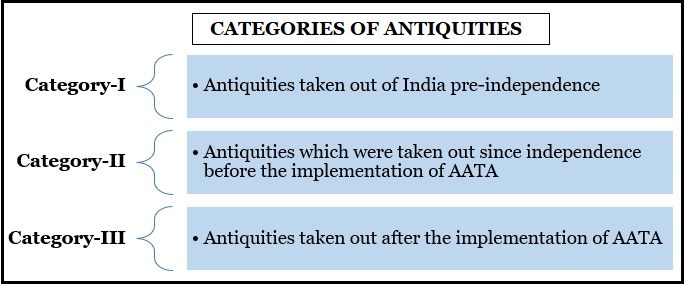India is close to signing an agreement with the United States under which the process for the return of stolen antiquities will be hugely simplified.
|
Antiquity criteria |
Duration |
|
Any article, object or thing of historical interest |
Not less than 100 years |
|
Manuscript, record or other document which is of scientific, historical, literary or aesthetic value |
Not less than 75 years |
|
Constitutional Framework to Protect Cultural Heritage |
|
An INTERPOL report in 2019 said that “the illicit international traffic of cultural items and related offences is sadly increasingly prolific.”

UNESCO 1970 declaration stated that, “The requesting Party shall furnish, at its expense, the documentation and other evidence necessary to establish its claim for recovery and return.
|
Cultural Property Agreement |
|
References